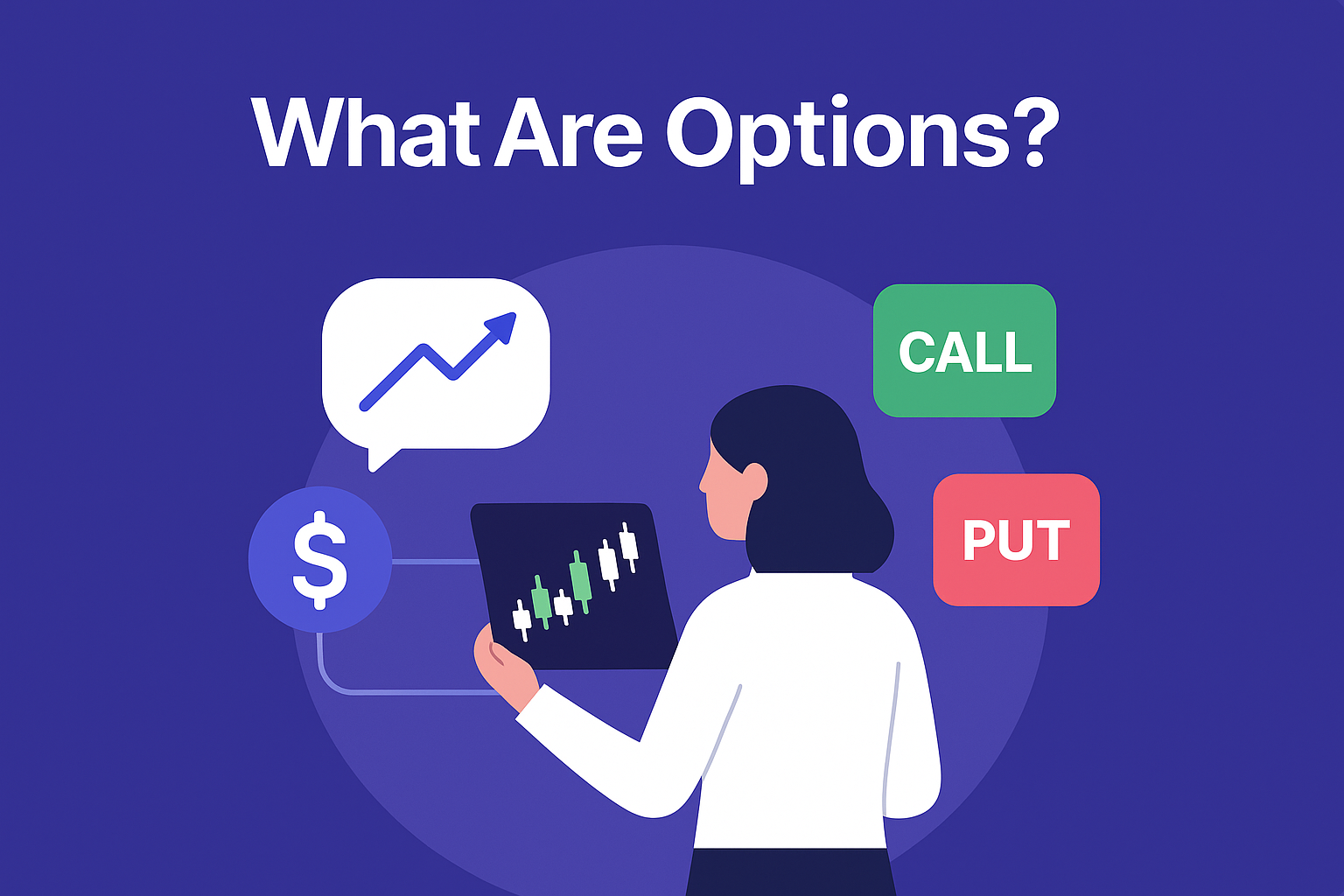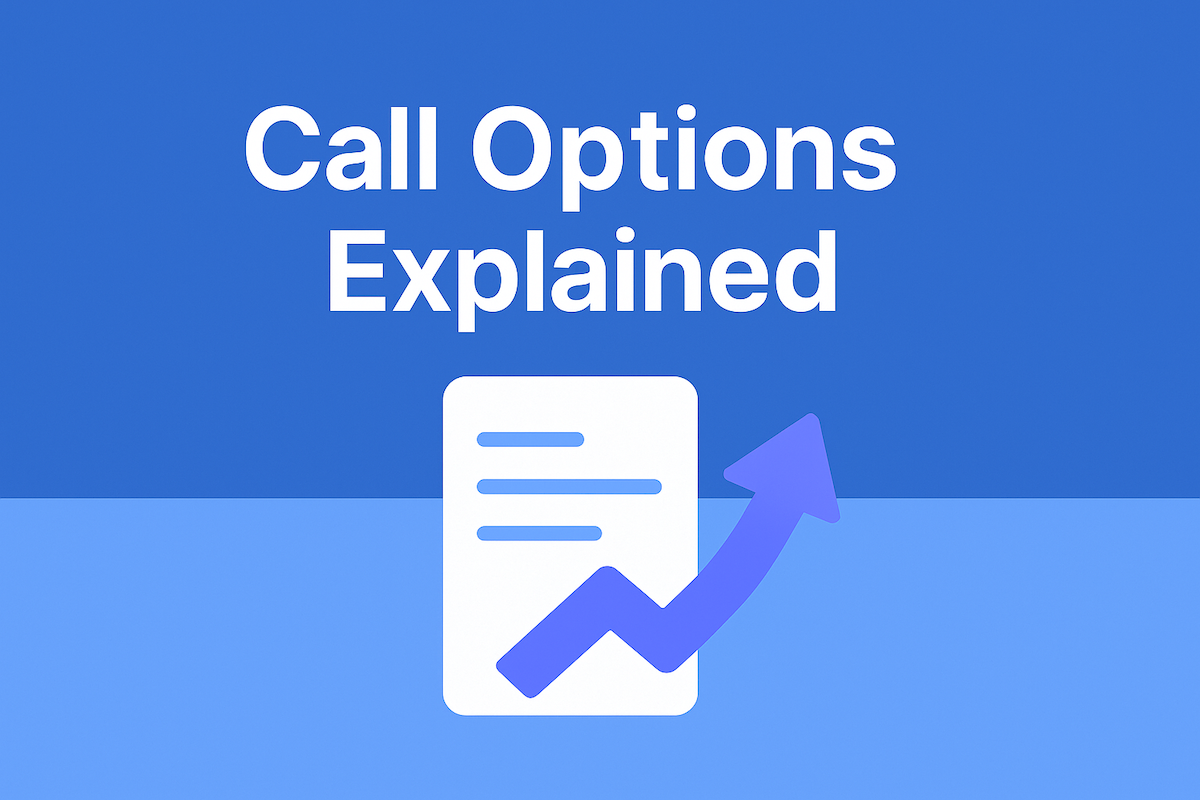What Are Options? A Complete Guide for New Traders
Options trading can seem intimidating at first, but understanding the basics opens up a world of strategic possibilities that go far beyond simple stock buying and selling. Whether you're looking to generate income, hedge existing positions, or speculate on market movements, options provide the flexibility that traditional stock trading simply can't match.
Understanding Options: The Foundation
An option is a financial contract that gives you the right, but not the obligation, to buy or sell a stock at a specific price within a certain timeframe. Think of it like a reservation at a restaurant – you have the right to that table, but you're not forced to show up.
When you buy an option, you're purchasing this right for a premium. The seller (or "writer") of the option collects this premium but takes on the obligation to fulfill the contract if you choose to exercise it.
The Two Types of Options
Call Options give you the right to buy a stock at a specific price. You'd buy a call if you think the stock price will go up. For example, if Tesla is trading at $200 and you buy a $210 call option expiring next month, you're betting Tesla will rise above $210.
Put Options give you the right to sell a stock at a specific price. You'd buy a put if you think the stock price will fall. Using the same Tesla example, buying a $190 put means you're betting Tesla will drop below $190.
Key Options Components
Every option has four critical elements:
Strike Price: The specific price at which you can buy (call) or sell (put) the stock. This is your "reservation price."
Expiration Date: When your option expires. Options can expire weekly, monthly, or even years out (called LEAPS).
Premium: What you pay to buy the option. This is influenced by the stock price, time remaining, and market volatility.
Underlying Asset: The stock the option represents. Popular choices include Apple, Microsoft, Amazon, and Tesla due to their liquidity and active options markets.
Real-World Example: Apple Call Option
Let's say Apple is trading at $175, and you believe it'll rise before earnings next month. You could buy a $180 call option expiring after earnings for $3.50 per share.
Since options represent 100 shares, your total cost is $350 ($3.50 × 100). If Apple rises to $190 at expiration, your option is worth $10 per share ($190 - $180), giving you a profit of $650 ($1,000 value - $350 cost).
However, if Apple stays below $180, your option expires worthless, and you lose the entire $350 premium.
Why Traders Use Options
Leverage: Control 100 shares with less capital than buying the stock outright. That Apple example above would require $17,500 to buy 100 shares versus $350 for the option.
Income Generation: Sell options to collect premiums as income, particularly effective with stable stocks like Coca-Cola or Walmart.
Risk Management: Hedge existing stock positions against potential losses. Own 100 shares of Meta? Buy a put to protect against downside.
Defined Risk: Unlike shorting stocks (which has unlimited risk), buying options limits your maximum loss to the premium paid.
Options vs. Stock Trading
Unlike stocks, options have expiration dates, making time a crucial factor. A stock can sit in your portfolio indefinitely, but options decay in value as expiration approaches. This time decay, called theta, works against option buyers but benefits option sellers.
Options also react more dramatically to price movements. While Meta stock might move 3% on earnings, Meta options could easily move 50% or more, amplifying both gains and losses.
Getting Started Safely
Begin with paper trading or small positions using highly liquid options on stocks like Apple, Tesla, or SPY (the S&P 500 ETF). These have tight bid-ask spreads and plenty of volume, making them easier to enter and exit.
Focus on learning one strategy at a time. Many successful traders stick to 2-3 strategies they understand deeply rather than jumping between complex approaches.
Key Takeaways
- Options provide the right, not obligation, to buy or sell stocks at specific prices
- Call options profit from rising prices, put options profit from falling prices
- Every option has a strike price, expiration date, premium, and underlying asset
- Options offer leverage, income potential, and risk management capabilities
- Time decay makes options more complex than stocks but creates unique opportunities
- Start with liquid options on well-known stocks and paper trade first
Frequently Asked Questions
Q: Can I lose more than I invest in options? A: When buying options, your maximum loss is limited to the premium paid. However, selling options can involve unlimited risk in certain strategies.
Q: How much money do I need to start trading options? A: Most brokers require $2,000-$5,000 minimum, but you can start learning with much smaller amounts. Some brokers offer options trading with as little as $500.
Q: Are options gambling? A: Options can be speculative, but they're also legitimate risk management and income-generation tools used by institutional investors and financial professionals.
Q: Which stocks are best for beginners? A: Start with highly liquid options on stocks like Apple, Tesla, Microsoft, or ETFs like SPY and QQQ. These have tight spreads and active markets.
Q: Do I need special approval to trade options? A: Yes, brokers require options approval based on your experience and financial situation. Most beginners start with Level 1 approval for basic strategies.
Ready to Track Your Options Like a Pro?
Understanding options is just the beginning. To build consistent profits, you need to track your trades, analyze performance, and identify what's working. OptionTracker.app provides the tools successful traders use to monitor their options portfolio, calculate returns, and optimize their strategies.
Sign Up for OptionTracker.app Today and take control of your options trading journey.
Want weekly insights on options strategies and market analysis? Join Our Newsletter for expert tips delivered to your inbox every week.
Disclaimer: Options trading involves substantial risk and is not suitable for all investors. Past performance does not guarantee future results. Please consider your investment objectives and risk tolerance before trading options. This content is for educational purposes only and should not be considered personalized investment advice.


